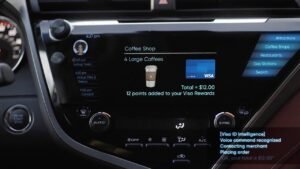Customer loyalty programs are experiencing unprecedented growth even as member engagement declines, according to a comprehensive new study from Boston Consulting Group (BCG) surveying over 10,000 consumers across nine countries in North America, Europe, and Asia-Pacific.
The research reveals that US consumers now belong to an average of 15 loyalty programs, marking a 10% increase since 2022. However, both loyalty metrics and engagement levels have declined significantly, with overall loyalty dropping 20% and engagement falling 10% in the same period.
“As competition has increased, people have become more aware of programs’ benefits and perks, and expectations are higher as a result,” notes BCG’s report, published December 2024. The study highlights a particularly concerning trend for traditional loyalty powerhouses, with hotel and airline programs showing the weakest customer retention among all sectors studied.
Paid membership programs, including streaming services, online gaming, and credit cards, demonstrated the strongest loyalty rates. Grocery, pharmacy, and retail sectors led among non-paid programs, though even these categories are experiencing declining engagement.
The research identified significant generational differences, with over 50% of consumers aged 18-34 planning to cancel some memberships in the coming year. Younger consumers show greater interest in personalized benefits and digital engagement, while those 35 and older prioritize monetary rewards.
Regional variations are substantial:
- US consumers overwhelmingly prefer tangible benefits, with 85% ranking points and cash back among their top five desired features
- European members belong to fewer programs (average of nine) but show higher engagement levels
- Asia-Pacific consumers demonstrate stronger interest in partnership benefits and exclusive services
- High-income households ($150,000+) show 5-10% higher program engagement than lower-income groups, though lower-income consumers display 5% stronger loyalty to their chosen programs.
Industry leaders are differentiating themselves through three key strategies:
- Enhanced customer activation through consistent touchpoints
- Improved customer experience via AI-powered personalization
- Exclusive benefits beyond traditional monetary rewards
- “Companies must offer tangible value to be competitive, but leaders offer benefits that go beyond monetary rewards,” explains the report, citing examples like Delta’s SkyMiles program offering free Wi-Fi and exclusive entertainment options.
The study concludes that as loyalty programs continue to proliferate, companies must innovate beyond traditional points-based systems to maintain member engagement and loyalty in an increasingly competitive landscape.














